Explore the world of canary care! Learn Are canary birds good as pets for pet lovers. Uncover their unique behaviors, health tips, and more. Your guide to joyful canary companionship.
Introduction About Canary Birds
Canary birds are mostly loved by people from allover the world for their colorful appearance and ability to sing beautiful songs. Here we will discuss about why canaray birds are famous for pet lovers We’ll look at what makes them special and answer common questions that new canary owners might have. Through this post we dive the interesting facts and needs to make canaries our furry friend.
Brief Overview of Canary Birds
To start off, let’s take a closer look at what makes canaries stand out among other avian companions. Canary birds belong to the finch family and are renowned for their colorful appearance, from vibrant yellows and oranges to more subdued shades. Originating from the Canary Islands, these charming birds have been cherished for centuries for their captivating songs and social nature. Whether you’re a seasoned bird enthusiast or a novice pet owner, understanding the basics of canary care is essential for a harmonious relationship with these feathered friends.
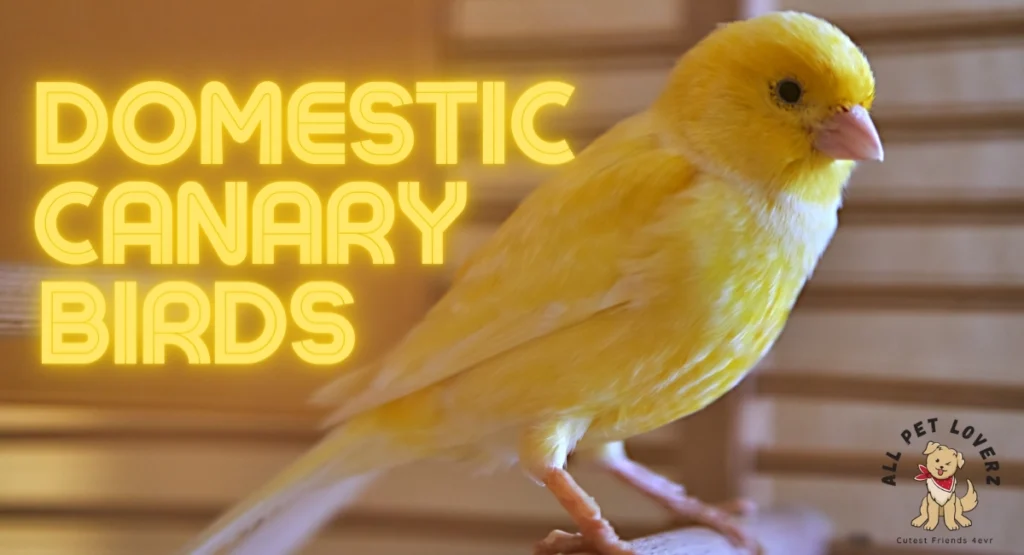
Popular Queries: What New Canary Owners Want to Know
Embarking on the journey of caring for a canary comes with curiosity and questions, especially for those new to the experience. As prospective canary owners navigate the path of pet companionship, common queries often arise. From dietary preferences and cage requirements to the intricacies of canary behavior, addressing these concerns upfront can ensure a smooth transition into responsible pet ownership. In the sections that follow, we’ll explore these queries in detail, providing practical insights for both seasoned pet lovers and those taking their first steps into the world of canaries. Let’s unravel the mysteries and joys of having canary birds as cherished members of your household.
Understanding Canary Birds Characteristics & Behavior
Lets have a quick look of Canary Birds Overview
| Common Names | Canary & Domestic Canary |
| Scientific Name | Serinus canaria domestica |
| Colors | Yellow, Red & Orange |
| Size | 4 – 8.5 Inches |
| Sound | Whistling & Chattering |
| Life | 6-14 Years |
Do Canaries Like to be Pet?
Curious about whether your canary enjoys a good petting session? Understanding the nuances of their behavior is key to fostering a positive relationship. Canaries, known for their observational nature, may not always crave physical affection like some other pets. However, with the right approach, you can create moments of gentle interaction that both you and your canary will cherish.
Observational Nature
Canaries, by nature, are keen observers. They may not always express their affection in the same way as dogs or cats, but they appreciate a watchful eye. Spending time near their cage, talking to them softly, and allowing them to become familiar with your presence can build a foundation of trust.
Gentle Interaction Tips
When it comes to physical interaction, approach with care. Start by extending a finger into their cage and allowing them to come to you. Some canaries may enjoy being lightly stroked on their back or head. Pay attention to their body language – if they seem comfortable, you’re on the right track. If not, respect their boundaries.
Respecting Boundaries
Just like humans, canaries have personal space preferences. If your feathered friend appears uneasy or disinterested in physical contact, it’s crucial to respect their boundaries. Over time, as trust deepens, they may become more receptive to gentle petting. Patience and understanding are key to building a harmonious connection with your canary.
Does a Canary Need a Partner?
Contemplating whether your canary needs a companion is a common consideration for pet owners. Understanding the social aspects of canaries is essential in making this decision.
Social Aspects of Canaries
Canaries are social creatures, thriving on interaction and companionship. While they may not require a partner in the same way some other species do, providing opportunities for social engagement is beneficial. Regular interactions with their human caregivers, coupled with enriching activities, can fulfill their need for companionship.
Single vs. Paired Canaries
The decision to have a single canary or introduce a mate depends on various factors, including your canary’s temperament and your ability to meet their social needs. Some canaries thrive as solo pets, relishing the undivided attention of their owners. Others may benefit from the presence of a compatible companion.
Signs of a Happy Canary Regardless of their relationship status, a happy canary exhibits signs of contentment. These include lively singing, active play, and a healthy appetite. Understanding these cues can help you gauge the well-being of your pet, whether they’re flying solo or sharing their space with a feathery friend. Stay tuned as we explore more facets of canary care in the upcoming sections.
Choosing Between Budgie and Canary
Which is Better: Budgie or Canary?
When it comes to feathered companionship, the choice between a budgie and a canary can be a delightful dilemma. Each bird brings its own unique qualities to the table, making the decision a matter of personal preference and lifestyle compatibility.
Personality Differences
Budgies, also known as parakeets, are renowned for their playful and sociable nature. They thrive on interaction and are often keen learners, enjoying activities such as mimicry and simple tricks. On the other hand, canaries are admired for their melodious songs and independent demeanor. Understanding the personality differences between these two avian companions is crucial in selecting the one that aligns with your preferences.
Vocalization Variances
One of the key distinctions between budgies and canaries lies in their vocalization. Budgies are known for their ability to mimic human speech and various sounds, providing lively entertainment. Canaries, however, showcase their musical talents through enchanting songs. Consider your tolerance for noise and the type of auditory experience you desire in your living space when making this decision.
Lifestyle Considerations
Your lifestyle plays a pivotal role in determining the suitability of a budgie or a canary as your feathered friend. Budgies thrive on social interaction and may require more time outside their cages for mental stimulation. Canaries, with their independent nature, may be more adaptable to periods of solitude. Assessing your daily routine, available time for interaction, and space constraints will help you make an informed choice. As we explore the nuances of avian companionship, stay tuned for insights into the care requirements, dietary considerations, and enriching activities that can enhance the bond between you and your chosen feathered friend. Whether you opt for the playful charm of a budgie or the enchanting song of a canary, the key is to create a nurturing environment that fosters a happy and healthy relationship.
Decoding Canary Vocal Habits
Are Canaries Noisy?
Delving into the world of canary vocal habits unveils a symphony of sounds that can bring joy to any bird enthusiast. Understanding the nuances of their vocalizations is key to appreciating the unique charm they add to your living space.
Melodic Serenades
Canaries are celebrated for their melodic serenades, transforming your home into a delightful aviary. The male canaries, in particular, showcase their vocal prowess with intricate and beautiful songs. These melodic performances are not just a display of musical talent but also serve as a means of communication and territorial expression.
Mild Vocalization
While canaries are known for their enchanting songs, it’s important to note that their vocalizations are generally mild and pleasant. Unlike some other bird species, they are not typically considered noisy or disruptive. This makes them an excellent choice for those who appreciate the auditory beauty of birds without the potential for excessive noise.
Understanding Individual Variations
Just as humans have unique voices, canaries also exhibit individual variations in their vocalizations. Some may be more prolific singers, while others may prefer occasional and softer tunes. Understanding and appreciating these individual differences contribute to a deeper connection with your canary.
As we explore the captivating world of canary vocal habits, it’s essential to acknowledge that their songs are not just a form of entertainment but also a means of expressing contentment and well-being. Stay tuned for further insights into deciphering the language of canaries and creating an enriching environment that encourages their natural vocal tendencies.
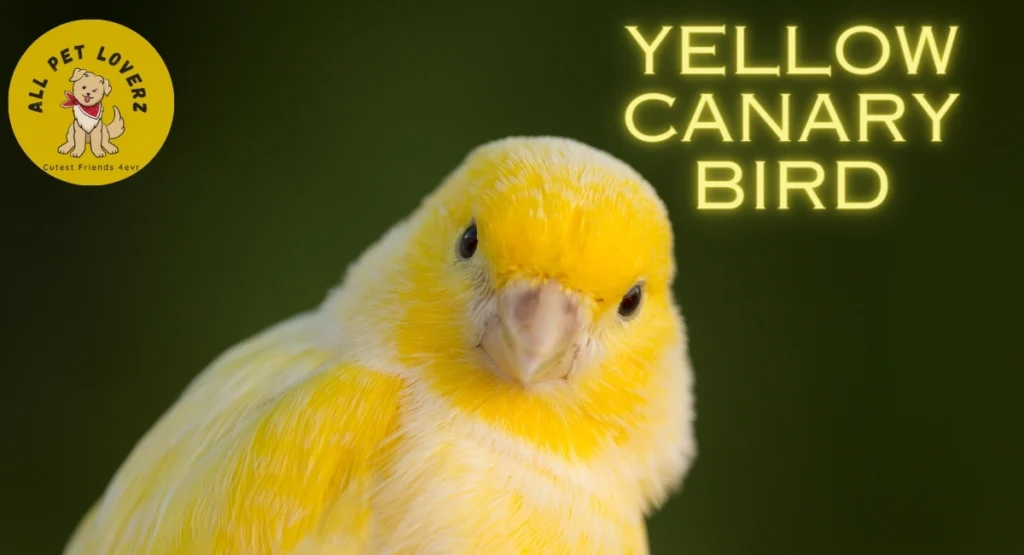
Life with a Pet Canary
Pet Canary Lifespan
Embarking on a life with a pet canary is a journey filled with companionship and joy. Understanding the factors that influence their lifespan and implementing tips for longevity are essential aspects of responsible pet ownership.
Factors Influencing Lifespan
The lifespan of a pet canary is influenced by various factors, including genetics, diet, and the overall care provided. Canaries, when well-cared-for, can live anywhere from 7 to 10 years on average. Providing a balanced and nutritious diet, a clean and comfortable living environment, and regular veterinary check-ups contribute significantly to their overall well-being.
Tips for Longevity
Ensuring a long and healthy life for your pet canary involves proactive measures. Regularly clean their cage, provide a diverse and nutritious diet, and monitor for any signs of illness. Additionally, offering mental stimulation through toys and interactive activities promotes both physical and mental well-being.
How Much Do Canaries Cost?
Understanding the financial aspects of caring for a pet canary is crucial for prospective owners. From initial costs to ongoing expenses, budgeting appropriately ensures a fulfilling and sustainable relationship with your feathered companion.
Initial Costs
Acquiring a pet canary involves initial expenses such as purchasing a suitable cage, providing quality food, and investing in basic accessories. These costs may vary based on the size and specifications of the cage, the type of food chosen, and any additional items like perches and toys.
Ongoing Expenses
Beyond the initial investment, ongoing expenses for a pet canary include regular purchases of food, bedding, and potential veterinary care. Factoring in these ongoing costs is essential for maintaining the health and happiness of your feathered friend.
Budgeting Tips for Canary Owners
To navigate the financial aspects of canary ownership, consider budgeting tips that ensure responsible care. Explore cost-effective yet high-quality food options, purchase supplies in bulk when possible, and set aside a contingency fund for unforeseen veterinary expenses. By adopting a mindful and proactive approach to budgeting, you can provide the best possible life for your pet canary without compromising on their well-being.
Stay tuned as we delve deeper into the various aspects of pet canary, covering topics such as Pros and Cons, grooming, health care, and the joys of fostering a strong bond with these charming birds.
Pros and Cons of Having Canaries as Pets
Canaries as Pets: The Positives
Welcoming canaries into your home as pets brings forth a myriad of positive aspects that contribute to a fulfilling and enjoyable companionship.
- Melodious Serenades: One of the undeniable pros of having canaries as pets is the enchanting melody they bring into your living space. Their beautiful songs create a soothing and delightful atmosphere, adding a touch of nature’s music to your daily life.
- Vibrant Personalities: Despite their small size, canaries boast vibrant and unique personalities. Observing their playful antics and distinct behaviors can be both entertaining and endearing, making them delightful companions for bird enthusiasts.
- Low Maintenance: Canaries are relatively low-maintenance pets, making them an excellent choice for individuals with busy lifestyles. Their simple dietary needs, minimal grooming requirements, and independent nature contribute to a hassle-free pet ownership experience.
Potential Challenges: Cons to Consider
While the joys of having canaries as pets are abundant, it’s essential to consider potential challenges that come with responsible ownership.
- Vocalization: The melodious songs of canaries, while pleasant for many, may pose a challenge for those sensitive to noise. If you live in close quarters or have noise restrictions, the constant singing may be a consideration.
- Limited Physical Interaction: Canaries, unlike some other pet birds, may not be as inclined towards physical interaction. If you’re seeking a hands-on and cuddly companion, the independent nature of canaries may be a factor to weigh.
Making an Informed Decision
To ensure a harmonious partnership with your pet canary, making an informed decision is crucial. Consider your lifestyle, preferences, and the commitment required for avian companionship. By understanding both the positives and potential challenges, you can embark on the journey of canary ownership with realistic expectations and a deep appreciation for these charming feathered friends. Stay tuned as we delve into practical tips for overcoming challenges, enhancing the positives, and creating a nurturing environment that fosters a strong bond between you and your pet canary.
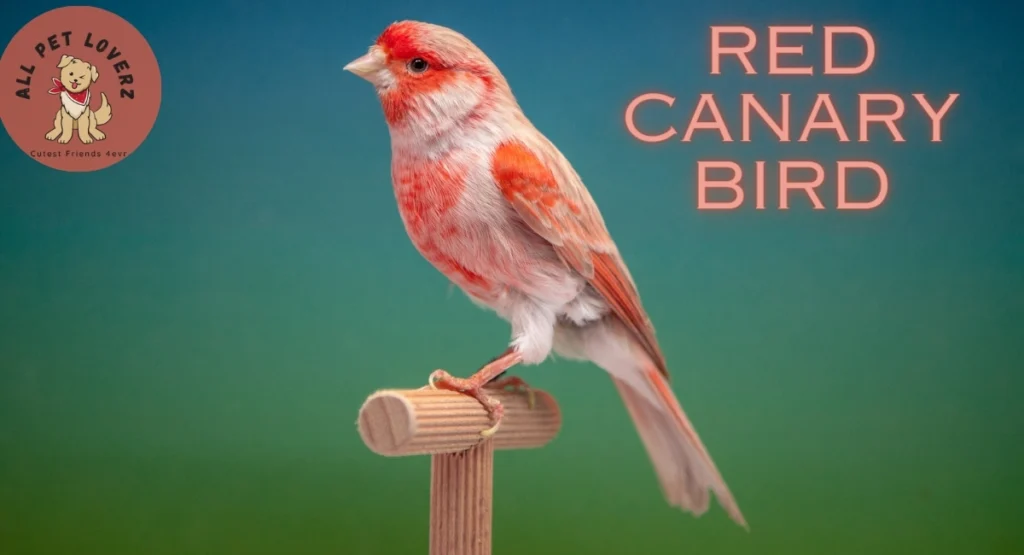
Building a Relationship with Your Canary
Do Canaries Recognize Their Owners?
Fostering a meaningful relationship with your pet canary involves understanding their ability to recognize and connect with their human caregivers. Let’s explore the nuances of this unique bond and how you can build trust and familiarity.
Familiarity and Trust
Canaries, despite their small size, have a remarkable capacity for recognizing their owners. Building familiarity and trust is a gradual process that begins with regular, positive interactions. Spend time near their cage, talk to them in a gentle tone, and offer treats to create positive associations with your presence.
Recognizing Owner’s Presence
Canaries are perceptive creatures, and they can quickly learn to recognize the unique features and sounds associated with their owners. As you consistently provide care and attention, your canary will develop a keen awareness of your presence. This recognition lays the foundation for a strong and trusting relationship.
Responsive Behavior
One of the indicators of a canary recognizing its owner is through responsive behavior. Your canary may display signs of excitement, such as fluttering its wings, singing more enthusiastically, or even hopping around in anticipation when it sees or hears you approaching. Paying attention to these subtle cues enhances the joy and connection in your relationship.
As we continue to explore the art of building a strong bond with your pet canary, stay tuned for practical tips on interactive activities, training techniques, and ways to enrich their environment. A well-nurtured relationship with your canary can bring immense joy and fulfillment to both you and your feathered friend.
Canary Living Conditions
Where Do Canary Birds Live?
Understanding the natural habitat of canary birds is crucial for creating a living environment that mirrors their needs and ensures their well-being.
Natural Habitat Insights
Canaries originate from the Canary Islands, where they inhabit a diverse range of environments, from forests to coastal areas. In the wild, they are known for their adaptability to varying altitudes and climates. Observing their natural habitat provides valuable insights into the conditions that can promote their physical and mental health.
Creating a Comfortable Home Environment
When bringing a canary into your home, it’s essential to replicate elements of their natural habitat to create a comfortable living space.
- Cage Size and Placement: Select a cage that provides ample space for your canary to fly, hop, and explore. Place the cage in a location with good natural light, away from drafts and direct sunlight.
- Perches and Accessories: Include a variety of perches and accessories within the cage to encourage natural behaviors. Different perch sizes and textures help maintain foot health, while toys and swings provide mental stimulation.
- Temperature and Humidity: Canaries are sensitive to temperature extremes. Maintain a comfortable room temperature, avoiding drafts and sudden temperature changes. Adequate humidity is also important, especially in drier climates.
- Dietary Considerations: Offer a well-balanced diet that includes high-quality canary seed mix, fresh fruits, and vegetables. Clean and fresh water should always be available.
Understanding and catering to these aspects of canary living conditions contribute to a happy and healthy pet. As we delve deeper into the intricacies of canary care, stay tuned for insights into grooming, health maintenance, and additional tips for providing an enriching environment for your feathered companion.
Canary Nutrition and Feeding
Feeding Your Canary
Ensuring a well-balanced and nutritious diet is essential for the health and vitality of your pet canary. Let’s explore their dietary preferences, how to achieve a balanced diet, and the inclusion of healthy treats.
Dietary Preferences
Canaries have specific dietary preferences that cater to their nutritional needs. A high-quality canary seed mix forms the foundation of their diet, providing essential nutrients. Additionally, supplementing their meals with fresh fruits and vegetables enhances the variety and nutritional value of their intake. Understanding their preferences allows you to create a diet that supports their overall well-being.
Balancing the Diet
Achieving a balanced diet for your canary involves providing a mix of seeds, including millet, canary grass seeds, and sunflower seeds. These seeds offer a combination of proteins, fats, and carbohydrates. Introduce fresh fruits such as apples, pears, and berries, as well as vegetables like leafy greens and carrots, to provide vitamins and minerals. Regularly assess their diet to ensure it meets their nutritional requirements.
Healthy Treats
Treats can be a delightful addition to your canary’s diet when offered in moderation. Consider healthy options such as small pieces of millet spray, cuttlebone for calcium, or a mix of seeds and dried herbs. Avoid sugary and fatty treats to maintain their overall health. Incorporating treats into their routine can serve as a positive reinforcement during training and create enjoyable moments for both you and your canary.
As we delve further into canary care, stay tuned for insights into grooming practices, health considerations, and ways to enhance the overall well-being of your feathered friend. Providing a nutritious and varied diet is a foundational step in ensuring a vibrant and happy life for your pet canary.
Preparing for a New Canary
Where Can I Buy a Canary?
Before bringing a new canary into your home, it’s essential to source your feathered companion from reputable and trusted sources. Let’s explore where you can purchase a canary and the considerations to keep in mind during the acquisition process.
Trusted Sources
When looking to buy a canary, consider reputable sources such as:
- Avian Breeders: Seek out experienced and ethical avian breeders who prioritize the health and well-being of their birds. A reputable breeder can provide valuable information about the canary’s background, diet, and any specific care requirements.
- Pet Stores: Some well-established and reputable pet stores may have canaries available. Ensure that the store maintains clean and healthy living conditions for their birds.
- Rescue Organizations: Adopting from bird rescue organizations is a noble option. Rescued canaries may offer a loving home to birds in need, and adoption processes often include thorough assessments of the bird’s health and behavior.
Considerations When Purchasing
When considering purchasing a canary, keep the following in mind:
- Health Check: Inspect the bird for signs of good health, such as bright eyes, clean feathers, and active behavior. Avoid birds showing signs of illness, like lethargy or respiratory issues.
- Enclosure Inspection: If purchasing from a breeder or store, assess the living conditions of the canaries. Clean and well-maintained enclosures are indicative of responsible breeding practices.
- Ask Questions: Inquire about the canary’s age, diet, and any specific care routines they are accustomed to. A knowledgeable seller or breeder will be willing to share information to ensure a smooth transition for the bird.
New Canary Owner Shopping List: What to Buy
As you prepare to welcome your new canary into your home, creating a welcoming and bird-friendly environment is key. Here’s a checklist of essential supplies to have on hand:
Essential Supplies:
- Cage: Provide a spacious cage with horizontal bars for climbing. Ensure the spacing between bars is appropriate to prevent escape.
- Perches: Offer a variety of perches of different sizes and materials to promote foot health.
- Food and Water Bowls: Choose bowls that are easy to clean and securely attach to the cage.
- Canary-Specific Seed Mix: Select a high-quality canary seed mix to form the basis of their diet.
- Toys: Include toys such as swings, mirrors, and bells to keep your canary mentally stimulated.
Creating a Canary-Friendly Space:
- Location: Place the cage in a quiet and draft-free area with access to natural light.
- Temperature Control: Ensure a comfortable temperature range, avoiding extremes that may stress the bird.
- Quiet Time: Allow for periods of quiet time, especially during the night, to promote restful sleep.
- Grooming Supplies: Have essential grooming supplies on hand, including a bird-safe nail clipper.
By carefully selecting your canary from trusted sources and preparing a welcoming environment, you set the stage for a positive and enriching experience as a new canary owner. Stay tuned for further insights into the care, training, and joys of building a strong bond with your feathered companion.
Maintaining Canary Health
Common Health Issues for Canaries
Ensuring the well-being of your canary involves being vigilant about common health issues and taking proactive measures to address any concerns. Let’s explore how to recognize signs of illness and the importance of regular veterinary check-ups.
Recognizing Signs of Illness
Understanding the signs of illness in canaries is crucial for early intervention. Look out for the following indicators:
- Changes in Behavior: Lethargy, increased aggression, or unusual behavior.
- Altered Eating Habits: A sudden change in appetite or difficulty in eating.
- Respiratory Issues: Labored breathing, wheezing, or nasal discharge.
- Changes in Droppings: Variations in color, consistency, or frequency of droppings.
- Feather Issues: Ruffled or puffed-up feathers, indicating discomfort.
- Visible Swelling: Swollen areas, especially around the eyes or feet.
If you notice any of these signs, seek prompt veterinary attention to address potential health concerns.
Regular Veterinary Check-ups
Schedule regular veterinary check-ups to monitor the overall health of your canary. A qualified avian veterinarian can perform thorough examinations, assess the bird’s weight, check for signs of illness, and provide guidance on preventive care measures. Regular check-ups contribute to early detection of potential health issues and help maintain your canary’s well-being.
Canary Exercise and Ongoing Care
Physical Activity Needs
Canaries, like all birds, benefit from regular physical activity to maintain their health and mental well-being. Encourage exercise through the following:
- Cage Size: Provide a spacious cage that allows for hopping, flying, and exploration.
- Perches and Toys: Incorporate a variety of perches and toys to stimulate physical and mental engagement.
- Outside Cage Time: Allow supervised outside-of-cage time in a safe and bird-proofed environment.
Daily and Weekly Care Routines
Establishing consistent daily and weekly care routines contributes to the overall health and happiness of your canary.
- Dietary Consistency: Maintain a consistent and balanced diet, ensuring fresh food and water daily.
- Cage Maintenance: Regularly clean and sanitize the cage to prevent the buildup of waste and bacteria.
- Grooming: Monitor and trim your canary’s nails as needed. Check for any signs of overgrown beaks or abnormal feathers.
- Interaction Time: Spend quality time with your canary daily, offering companionship and mental stimulation.
By incorporating these practices into your canary care routine, you contribute to the overall health, happiness, and longevity of your feathered companion. Stay tuned for further insights into grooming, training, and additional aspects of canary care to enhance the bond between you and your pet.
Keeping the Canary Habitat Clean
Canary Habitat Cleaning
Maintaining a clean and hygienic environment is essential for the health and well-being of your canary. Let’s delve into the importance of cleanliness and explore effective cleaning tips and best practices.
Importance of Cleanliness
A clean habitat is paramount to your canary’s health and happiness. Regular cleaning helps prevent the accumulation of waste, bacteria, and potential hazards that can compromise their well-being. A hygienic living space supports respiratory health, reduces the risk of infections, and provides a comfortable and stress-free environment for your feathered friend.
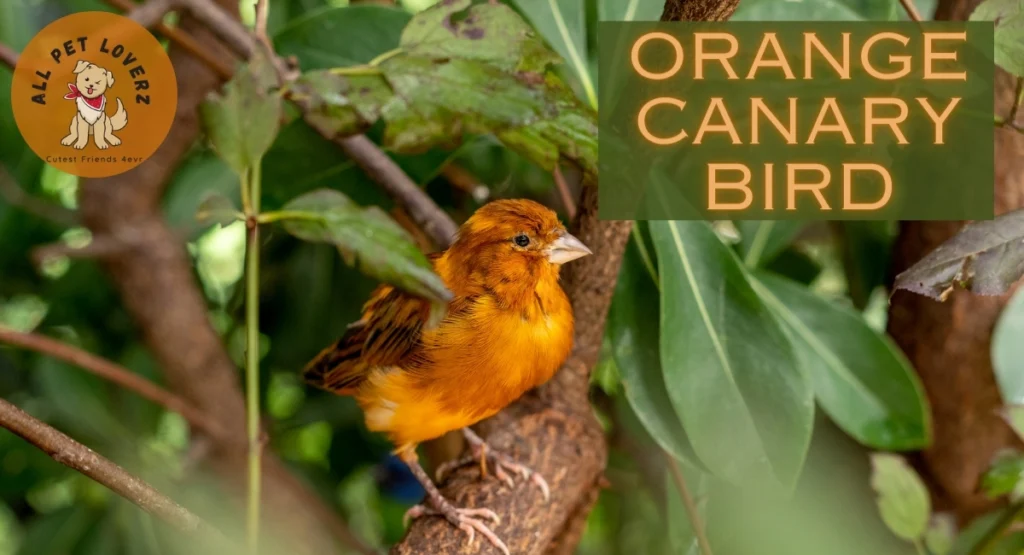
Cleaning Tips and Best Practices
To ensure a clean and healthy habitat for your canary, consider the following cleaning tips:
- Daily Waste Removal: Remove droppings and uneaten food daily to maintain a clean cage. This prevents the buildup of bacteria and keeps the environment sanitary.
- Weekly Cage Cleaning: Conduct a more thorough cleaning at least once a week. Remove your canary from the cage and clean all accessories, perches, and toys. Scrub the cage with a bird-safe disinfectant and allow it to air dry before reintroducing your canary.
- Food and Water Bowls: Clean and sanitize food and water bowls daily to prevent the growth of harmful bacteria. Use mild, bird-safe soap and rinse thoroughly.
- Bedding Replacement: If your canary’s cage includes any form of bedding or substrate, replace it regularly to prevent the accumulation of waste and moisture.
- Toy Inspection: Regularly inspect and clean your canary’s toys. Remove any broken or damaged items that could pose a safety risk. Rotate toys to keep the environment stimulating.
- Air Quality: Ensure good air circulation in the room where the cage is located. Avoid placing the cage in drafty areas, and use a bird-safe air purifier if needed.
- Vet-Approved Products: When using cleaning products, choose those approved by avian veterinarians. Avoid strong chemicals or fumes that could be harmful to your canary.
By incorporating these cleaning practices into your routine, you create a hygienic and safe environment for your canary. A clean habitat not only supports their physical health but also contributes to a positive and comfortable living space. Stay tuned for more insights into the care and well-being of your pet canary.
Conclusion
In conclusion, the journey of having a canary as a pet is a rewarding and enriching experience. From understanding their unique behaviors and nutritional needs to creating a conducive living environment, each aspect contributes to the well-being and happiness of your feathered companion.
By recognizing the importance of cleanliness, maintaining a balanced diet, and being attuned to the signs of their health, you can provide the optimal care necessary for a canary’s flourishing life. Building a strong bond through interaction, recognizing their individual preferences, and ensuring regular veterinary check-ups are key components of responsible ownership.
As you embark on this avian adventure, remember that the joys of having a canary extend beyond the melodic songs and vibrant plumage. It’s a journey of companionship, learning, and mutual understanding. Whether you are a new canary owner or an experienced enthusiast, the continuous effort to provide a loving and stimulating environment for your canary is a commitment that enhances both their life and yours.
Stay curious, observant, and compassionate in your approach to canary care. The rewarding moments of shared songs, playful antics, and the genuine connection you build with your canary make this journey truly special. May your time with your feathered friend be filled with joy, companionship, and the harmonious melody of a content canary.

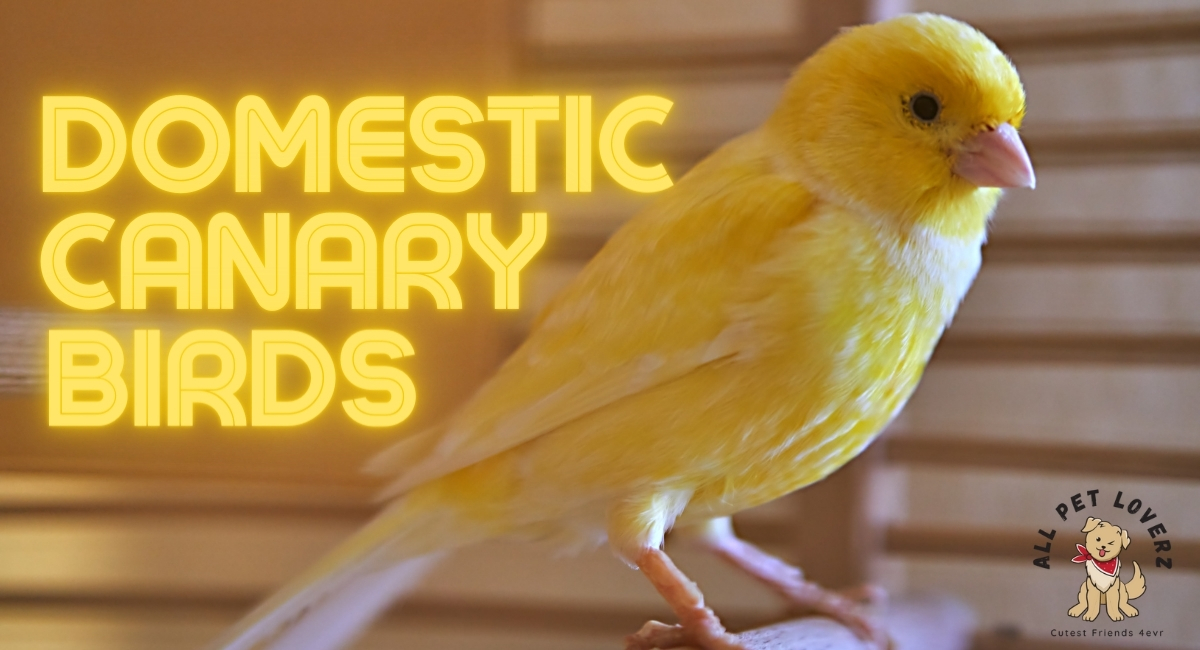
1 thought on “Are Canary Birds Good As Pets For Pet Lovers”